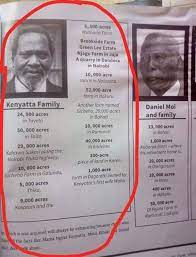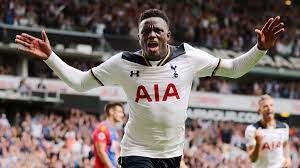We currently have three spheres of power in Kenya: the Uhuru sphere, the Raila sphere and the Ruto sphere.
By virtue of their respective positions and status, the Uhuru sphere is the most powerful, but not acting alone. To consolidate his power, Uhuru needs Raila Odinga, whose sphere is significant, but not at par with the President, for obvious reasons.
You then have Ruto’s sphere, which is inferior of the three and largely dependent on Uhuru’s sphere, even though DP William Ruto and his supporters would have you believe that is not the case.
As an illustration of these relationships, if you draw three circles with each having its centre on the boundary of the other, you will have in the middle of the graph what mathematicians call a reuleaux or spherical triangle. Anything inside this area can be said to belong to any one of the three circles.
In Kenya’s political terms, that is the area you will find politicians who enjoy some form of relationship with the three men. It’s not a constant. These politicians are not permanently in this spherical triangle, rather, they come in and out even though some can be there on a more permanent basis.
On the other hand, you do have those from any of the circles you will never find in the spherical triangle.
Count among those State House operatives working around the clock to try and tame or stay ahead of Ruto and his shenanigans, some Raila insiders in Upper Hill, and frequent guests at the DP’s residences.
Among those you can count on finding in the spherical triangle at any given time are your never disappointing chameleons. They have mastered the art of finishing you, even as they laugh with you.
They will stand by you, offer you physical, moral and psychological support, even as they are actively scheming ways and means to finish you politically, if not altogether eliminating you.
They are your friends, relatives and otherwise people close to you in your personal and professional life. To you, they can do you no wrong.
These are the enemies Niccolo Machievelli counsels in his epic treatise, The Prince, to keep closer than your friends, lest you find too late they have stabbed you and you are no more.
Uhuru and Raila have these characters in their respective circles but less so Ruto for the simple reason the DP commands a certain level of loyalty bordering on a cult. It’s hard to imagine anyone pretending not to be but his loyal friend.
That doesn’t mean there are not men and women in Ruto’s camp who are in the spherical triangle and cunningly trying to fool or con Uhuru or Raila.
Again, those in Ruto’s sphere are 100 per cent loyal and immovable: They are to Ruto what hardcore Trump supporters are to him: The man can do no wrong, and they will never desert him no matter what.
While Ruto has no one in his sphere who is ready to stab him in the back, Raila has a busload of them. Indeed, some of the people who have contributed to Raila not being President include his “good friends.”
With friends like that, one needs no enemies.
President Kenyatta splits the two. In other words, while Uhuru, like Ruto, has loyalists who would never betray him, he has since 2013 had one who has done nothing but exploit his weaknesses on every occasion he has, to be where he is.
The question is, what to do? What should Uhuru and Raila do? As the referendum looms, followed by 2022, the only effective way to counter vigeugeus, is to dangle some carrots and hopefully have them in your corner long enough to accomplish that which you must.
If that fails, whip them using the various legal tools at your disposal.








